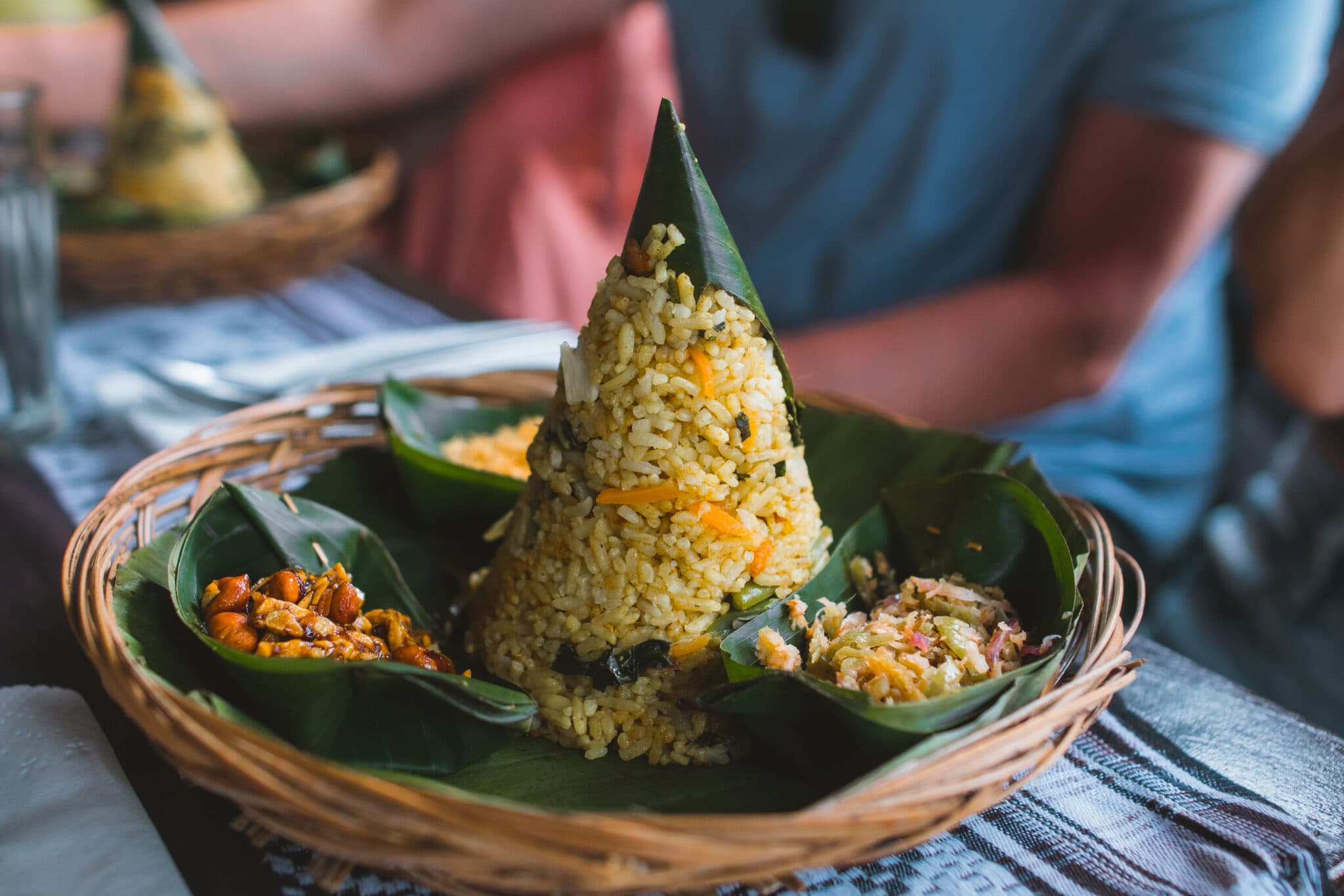The popularity of veganism has soared globally, with an increasing number of people adopting plant-based diets for many reasons. The vegan food market is set to be valued at over USD 22 billion by 2025, with the meat substitute market on track to reach an estimated USD 7.5 billion.
One of the primary drivers behind this surge is the growing awareness of the ethical implications of animal agriculture. Documentaries, social media campaigns, and grassroots activism have shed light on the harsh realities of factory farming, prompting individuals to reconsider their dietary choices and embrace more compassionate alternatives. Furthermore, there are now more plant-based alternatives for milk, eggs, and meat on the market than ever before, and it’s getting easier to follow a plant-based diet.
A Beginners Guide To Going Vegan
Vegan food tourism is also a highly sought-after option for anyone wanting to explore the local culture and cuisine but still feel confident that plant-based options will be available.
You’re not alone if you’re considering transitioning to a vegan lifestyle. However, making this change can feel daunting, especially if you need help figuring out where to start.
This beginner’s guide will provide you with all the information you need to confidently embark on your vegan journey. You probably already have most of the things you need to get started! So, let’s look at how you can prepare and begin your excellent vegan adventure.

Understanding The Vegan Lifestyle
At its core, veganism is a lifestyle choice that seeks to exclude all forms of exploitation and cruelty to animals. This extends beyond diet to include clothing, personal care products, and other aspects of daily life. While veganism’s primary focus often revolves around diet, it’s essential to recognise that it encompasses a broader ethical stance.
People who adhere to a vegan lifestyle avoid consuming meat, dairy, eggs, and any other products derived from animals. This includes honey, gelatin, and certain additives or ingredients derived from animal sources.
By abstaining from animal products, vegans aim to reduce their impact on animal exploitation, decrease their carbon footprint, and promote a more compassionate and sustainable way of living. Many vegans also advocate for plant-based diets to improve personal health and well-being.
Changing your diet is one of the most significant aspects of adopting a vegan lifestyle. A vegan diet excludes all animal products and relies on plant-based foods such as fruits, vegetables, grains, legumes, nuts, and seeds.
Contrary to popular belief, a well-planned vegan diet can provide all the nutrients your body needs for optimal health.

Essential Nutrients To Focus On When Changing To A Vegan Diet
When transitioning to a vegan diet, paying attention to specific nutrients is essential to maintain good health. These include:
- Protein: While animal products are commonly associated with protein, many plant-based foods are rich in this vital nutrient. Legumes like beans, lentils, chickpeas, tofu, tempeh, seitan, and quinoa are excellent protein sources.
- Calcium: Calcium is abundant in many plant foods, including fortified plant milks, tofu, tempeh, almonds, sesame seeds, and leafy greens like kale and collard greens.
- Vitamin B12: Since vitamin B12 is primarily found in animal products, vegans should supplement or consume fortified foods such as plant-based milk, breakfast cereals, and nutritional yeast.
- Calcium: Good sources include fortified plant milk (such as almond, soy, or oat milk), tofu, fortified orange juice, kale, bok choy, and almonds.
- Vitamin B12: This vitamin is primarily found in animal products, so vegans should consume fortified foods like plant milk breakfast cereals or take a B12 supplement to ensure adequate intake.
- Omega-3 fatty acids: Sources include flaxseeds, chia seeds, hemp seeds, walnuts, and algae-based supplements.
- Vitamin D: While sunlight exposure helps with vitamin D synthesis, fortified foods like plant milk, orange juice, and certain cereals can provide additional sources. Some people may require a supplement, mainly if they have limited sun exposure.
- Zinc: Good sources include legumes, nuts, seeds, whole grains, and fortified cereals.
- Iodine: Sea vegetables (such as nori, kombu, and wakame) are rich sources of iodine. Iodised salt and fortified foods can also contribute to iodine intake.
- Omega-3 fatty acids: Sources include flaxseeds, chia seeds, hemp seeds, walnuts, and algae-based supplements.
- Iron: Plant-based sources include lentils, beans, tofu, tempeh, fortified cereals, spinach, and pumpkin seeds. Consuming vitamin C-rich foods alongside iron-rich foods can enhance iron absorption.

Meal Planning & Recipes
Meal planning is critical to a successful transition to a vegan diet. Here are a few simple steps you can take when it comes to meal prepping vegan dishes:
- Start by familiarising yourself with plant-based recipes and experimenting with new ingredients.
- Websites, cookbooks, and social media platforms are excellent resources for finding inspiration and delicious vegan recipes.
- Planning your meals and batch cooking can save you time so be sure to freeze your prepped dishes in advance.
- Keep it simple – add your dressings fresh each time.
- Recreate dishes that you already enjoy by swapping non-vegan ingredients for the plant-based alternative.
Navigating Social Situations As A Vegan
Unfortunately, not everyone will understand or support your decision to go vegan. You may encounter criticism from friends, family members, or even strangers. It’s important to remember that your choice to live compassionately aligns with your values, and you are not obligated to justify your decision to anyone else.
Educate yourself about veganism and be prepared to respond to common questions and concerns with patience and kindness.
A great way to find new vegan friends, travel and have a great time is to join one of our upcoming getaways! You can indulge in all of the amazing local cuisine, meet with like-minded individuals and learn new vegan recipes from our vegan foodies.

Handling Criticism
Unfortunately, not everyone will understand or support your decision to go vegan. You may encounter criticism from friends, family members, or even strangers. It’s important to remember that your choice to live compassionately aligns with your values, and you are not obligated to justify your decision to anyone else.
Educate yourself about veganism and be prepared to respond to common questions and concerns with patience and kindness.
Going vegan is a rewarding experience. It has its challenges but once you embrace the reasons behind why you are following a plant-based journey you will find your values, mindset and outlook on life changes in a positive way. Finding community is essential for navigating a huge lifestyle shift so be sure to reach out to vegan groups and find new vegan eateries or events in your local area.
Health Benefits Of Going Vegan
Numerous studies have linked vegan diets to various health benefits, including lower rates of heart disease, type 2 diabetes, and certain cancers. Plant-based diets are rich in fibre, vitamins, minerals, and antioxidants, which can support overall health and well-being.
Adopting a vegan lifestyle may encourage you to explore new foods and culinary techniques, leading to a more diverse and nutritious diet.
Please note that this is not medical advice.

Tips For Long Term Success As A Vegan
Transitioning to a vegan lifestyle is a journey, and being patient with yourself along the way is essential.
Here are some tips for long-term success:
- Educate yourself: Take the time to learn about veganism, including its ethical, environmental, and health-related aspects.
- Be open-minded: Embrace new foods and flavours, and don’t be afraid to experiment with plant-based cooking.
- Practice self-care: Pay attention to your body’s needs and prioritise self-care activities like exercise, meditation, and adequate sleep.
- Celebrate your progress: Celebrate your successes, no matter how small, and recognise the positive impact your choices are making on your health, the environment, and animal welfare.
